Published by the International Institute for Sustainable Development
(IISD)
Vol. 12 No. 81
Monday, June 08 1998
HIGHLIGHTS FROM THE MEETINGS OF THE FCCC SUBSIDIARY BODIES
5-6 June 1998
On Friday, the Subsidiary Body for Implementation (SBI) discussed the second review of
adequacy of commitments and arrangements for intergovernmental meetings. The Subsidiary
Body for Scientific and Technical Advice (SBSTA) debated the roster of experts and
methodological aspects of the proposal by Brazil. On Friday and Saturday, the Ad Hoc Group
on Article 13 discussed the Multilateral Consultative Process (MCP). Contact groups also
continued to deliberate outstanding issues.
SUBSIDIARY BODY FOR IMPLEMENTATION
On the second review of the adequacy of Article 4.2 (a) and (b), 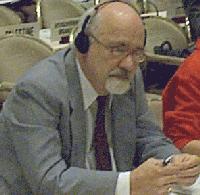 VENEZUELA,
for the G-77/CHINA and supported by TOGO, said that: COP-4's second review must respect
the FCCC mandate, as set out in Article 2(d); COP-4's review must not be distracted by
extraneous consideration of new commitments for non-Annex I Parties; COP-4 should convene
the next review at the same time as the review at COP/MOP-2 in accordance with Article 9.2
of the Protocol; and subsequent reviews should take place in the year preceding the
termination of successive Protocol commitment periods. VENEZUELA,
for the G-77/CHINA and supported by TOGO, said that: COP-4's second review must respect
the FCCC mandate, as set out in Article 2(d); COP-4's review must not be distracted by
extraneous consideration of new commitments for non-Annex I Parties; COP-4 should convene
the next review at the same time as the review at COP/MOP-2 in accordance with Article 9.2
of the Protocol; and subsequent reviews should take place in the year preceding the
termination of successive Protocol commitment periods.
 G-77/China
position declaration and reactions available in RealAudio G-77/China
position declaration and reactions available in RealAudio
The US asked the G-77/CHINA if the intention was only to confine discussion of the
second review to that agenda item at COP-4; and about the timing of the next and
subsequent reviews. The G-77/CHINA said the second review should be limited to that
foreseen in Article 4; it would be logical to hold the next review at the same time as
COP/MOP-2; and indicated flexibility on timing of subsequent reviews. The US said one of
the bases of the inadequacy of Articles 4.2 (a) and (b) is the insufficient number of
Parties subject to those commitments. Referring to newly industrialized countries, he
noted an interest in exploring ways to move beyond the static world created by the Annex I
list. A way to modify the Annexes was needed. 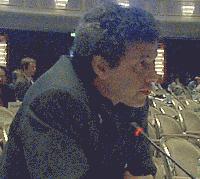 HUNGARY
said the timing of reviews should not be linked to the unratified Kyoto Protocol. SAUDI
ARABIA recalled the existing FCCC provision for any Party to undertake Annex I
commitments. PERU said the Kyoto Protocol was a very delicate balance. Raising developing
country commitments at COP-4 would be a danger for the international community and for the
environment. CHINA said the G-77/China position clearly stated that developing countries
would not accept new commitments under any guise. HUNGARY
said the timing of reviews should not be linked to the unratified Kyoto Protocol. SAUDI
ARABIA recalled the existing FCCC provision for any Party to undertake Annex I
commitments. PERU said the Kyoto Protocol was a very delicate balance. Raising developing
country commitments at COP-4 would be a danger for the international community and for the
environment. CHINA said the G-77/China position clearly stated that developing countries
would not accept new commitments under any guise.
MEXICO said questions on OECD membership are inappropriate. VENEZUELA stated that
4.2(d) only calls for review of commitments under 4.2(a) and (b). The EU noted those
commitments are inadequate. 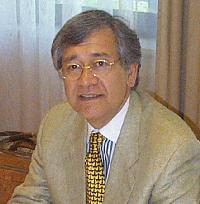 AOSIS
said that Parties should not distract from Protocol implementation, noting the CDM will
assist sustainable growth with climate protection. The Chair asked Canada and Zimbabwe to
co-chair a contact group to prepare a draft decision. AOSIS
said that Parties should not distract from Protocol implementation, noting the CDM will
assist sustainable growth with climate protection. The Chair asked Canada and Zimbabwe to
co-chair a contact group to prepare a draft decision.
On arrangements for intergovernmental meetings (FCCC/SBI/1998/3), the Executive
Secretary announced Jordan's offer to host COP-5. ARGENTINA noted ongoing informal
consultations on a new COP-4 item on voluntary commitments by non-Annex I Parties. The
PHILIPPINES requested a separate item on review of development and transfer of
technologies (Decision 7/COP-2).
SUBSIDIARY BODY FOR SCIENTIFIC AND TECHNICAL ADVICE
On the roster of experts, CANADA, the UK, the 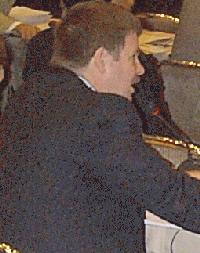 US
and NEW ZEALAND called for regular reviews as well as inclusion of gender considerations. US
and NEW ZEALAND called for regular reviews as well as inclusion of gender considerations.
In response to a query from ETHIOPIA on the fate of previous submissions to the roster,
the Chair noted that the compilation was an ongoing process. BOTSWANA stressed the need
for adequate time for notifying and inviting the experts, and, supported by CHINA,
stressed the need for regional distribution of experts. TOGO sought clarification on the
absence of "air" from the areas of expertise.
Delegates considered the scientific and methodological aspects of a proposal made by
Brazil (FCCC/AGBM/1997/Misc.3/Add.1) during the AGBM process and forwarded by COP-3 to
SBSTA. BRAZIL recalled that the proposal contained a clean development fund that has been
replaced by the Kyoto Protocol's Clean Development Mechanism (CDM). The proposal contained
a technical and scientific aspect that establishes a methodology for linking the
historical responsibility for increasing global temperature with the responsibility for
lowering emissions. He proposed a contact group to consider the issue at this meeting and
announced his government will convene an expert meeting soon. CHINA said the proposal
highlights the "real" relative responsibility of Annex I and non-Annex I
countries.
GREENPEACE said some of the methodology needs enhancement, noting that the proposal
contains no methodology for several technical and policy assumptions. He said further
development would be useful for the second review of adequacy of commitments.
The EU, the US, SWITZERLAND and AUSTRALIA said the proposal requires broader discussion
and expressed concern about, inter alia: the method for reconstructing historical
emissions; indicators that ignore the rate of change; and the availability of data.
On additional methodological issues for consideration by SBSTA, SWITZERLAND queried how
the proposal by Brazil can be included under the Convention. The meeting decided that a
small group comprising (those who raised questions) work together in proposing concrete
suggestions on advancing the proposal further. SWITZERLAND raised the issue of expert post
reviews and evaluation of GHG inventories, and proposed a set of decisions for COP-4,
which included calls for consideration of aerosols from combustion of fossil fuels,
biomass burning and other greenhouse gas precursors as highlighted by the SAR; and the
ratification of, and negotiation for a protocol to the Convention on Long-Range
Transboundary Air Pollution.
AD HOC GROUP ON ARTICLE 13 (AG13)
On Friday,  delegates
began consideration of the heavily bracketed draft text from the last AG13 session
(AG13-5). Chair delegates
began consideration of the heavily bracketed draft text from the last AG13 session
(AG13-5). Chair 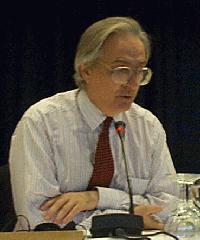 Patrick
Széll (UK) recalled that during AG13-5, delegates agreed that the MCP should be
advisory rather than supervisory in nature. They also agreed that AG13 should complete its
work by COP-4. He stressed that the meeting will discuss only the MCP and not the
Protocol. Patrick
Széll (UK) recalled that during AG13-5, delegates agreed that the MCP should be
advisory rather than supervisory in nature. They also agreed that AG13 should complete its
work by COP-4. He stressed that the meeting will discuss only the MCP and not the
Protocol.
 RealAudio of AG13
session RealAudio of AG13
session
On paragraph 12, delegates debated who could trigger the MCP: one or more Parties, the
COP, SBI or SBSTA, and/or the Secretariat. GHANA, IRAN and SINGAPORE said there was no
need to include the other subsidiary bodies. The US, GHANA, ZIMBABWE, CANADA, the EU,
AUSTRALIA and IRAN said the Secretariat should not be included. Regarding information from
the Secretariat, delegates debated, inter alia, whether it would seek information upon
request or on its own volition.
There was no agreement on whether one country could raise questions regarding another
country. Many delegations recalled that the MCP was to be non-confrontational. The Chair
sought language denoting that presenting questions to the MCP had only positive
connotations. CANADA, supported by the US, suggested that raising the number of Parties
necessary to trigger the MCP would make it less confrontational. The EU disagreed.
Delegates also debated language on supplying relevant information when triggering the MCP.
On paragraph 2 (objective of the MCP), many delegates stated that this issue could only
be resolved once the mandate of the Committee (paragraph 5) is agreed. Delegates also
discussed the proposed language changes in paragraph 5 and underscored the importance of
clarity. They did not resolve what kind of assistance (technical, consultative or
financial) the Committee will provide to Parties. On paragraph 6, AUSTRALIA suggested that
the Committee should not duplicate activities performed by other Convention
"processes" as opposed to Convention bodies. GHANA suggested that the question
go to a drafting group.
On paragraph 1, (establishment of the MCP), the EU, supported by GHANA, the US and
AOSIS, preferred a "standing" Multilateral Consultative Committee reporting to
the COP. A bracketed reference to the SBI was deleted. In paragraph 3 (nature of the MCP),
delegates debated the description of the MCP as "transparent." Following
discussion, the Chair invited the US to draft an interpretive statement for inclusion in
the AG13 report, indicating that transparency should be understood as a reference to the
overall process and outcome and not to the question of access to meetings. The Chair also
proposed a drafting group, coordinated by Zimbabwe, to consider drafting questions.
AG13 discussion continued on Saturday. Regarding paragraph 4 (nature of the MCP),
AUSTRALIA raised the possibility of duplication by the MCP of other FCCC dispute
settlement work. The EU, UNITED ARAB EMIRATES and IRAN noted the MCP's purpose is advisory
only.
Paragraphs 7 (Committee size) and 9 (Committee Constitution) were considered jointly.
Delegates generally agreed to: limit the number of participants in the MCC, rotate terms
of two or three years; and permit the other subsidiary bodies' Chairs to participate as
observers. They were divided over exact membership numbers, with the EU, SLOVENIA, the US
and others favoring under 15 members while the G-77/CHINA called for 25 members. Most
delegates accepted unbracketed text on equitable geographical distribution among regions,
but the US proposed dividing membership equally between Annex I and Annex II. Language
allowing for a roster of experts in paragraph 9 was not supported.
On paragraph 8 (expertise), delegates agreed, based on proposals from GHANA and the EU,
the Committee should comprise persons nominated by governments who are experts in relevant
fields, such as science, socio-economics and the environment.
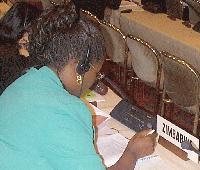 ZIMBABWE,
for the drafting group, reported that Parties agreed to remove brackets from paragraph 2
(objective), which is to resolve questions regarding implementation of the FCCC. The
process will provide for advice on assistance to Parties to overcome difficulties in their
implementation, promote understanding of the FCCC, and prevent disputes. ZIMBABWE,
for the drafting group, reported that Parties agreed to remove brackets from paragraph 2
(objective), which is to resolve questions regarding implementation of the FCCC. The
process will provide for advice on assistance to Parties to overcome difficulties in their
implementation, promote understanding of the FCCC, and prevent disputes.
In paragraph 12 (taking up issues), ZIMBABWE said the four subparagraphs remain in
brackets. The US queried the decision not to specify the SBI and SBSTA. SLOVENIA suggested
that a Party raise questions with respect to its own implementation. On paragraph 5
(mandate), Parties debated the implications of a reference to provision of "the"
appropriate assistance.
In paragraph 10 (deliberations), the EU, supported by SLOVENIA and GHANA, proposed that
the Committee meet "at least once a year." Responding to US concerns, delegates
accepted an EU proposal to merge paragraphs 10 (deliberations) and 11 (governance). On
paragraph 11, the EU, supported by GHANA, preferred that the Committee report to each
session of the COP, and agreed to deletion of a reference to the SBI. On paragraph 13
(outcome), GHANA, supported by the EU, proposed deleting "encouragement" from
the elements to be included in conclusions and recommendations. The Chair noted deletion
of the SBI. The US questioned an EU proposal to end the paragraph with: "with a view
to the COP taking whatever decisions it considers necessary." The US suggested that
the paragraph be consistent with the Committee's mandate and publication of
recommendations. CANADA raised majority voting and provision for minority decisions.
IN THE CORRIDORS
Participants in the contact group on flexibility mechanisms reported little progress,
particularly on emissions trading. Some delegates see emissions trading as unworkable
without a strong monitoring network, but fear the costs of monitoring an international
trading system could be exorbitant. In addition, much discussion in a five-hour G77/China
caucus on Saturday focused on emissions trading and entitlements. Several argued strongly
for per capita entitlements but no proposal has yet appeared. The Land Use Change and
Forestry contact group reportedly reached tentative agreement on what could be delivered
by COP-4.
THINGS TO LOOK FOR
AG13: AG13 will meet at 10:00 am in the Beethoven Room.
SBI: SBI will meet at 10 :00 in the Maritim Room.
SBSTA-SBI: A joint Plenary will meet at 3:00 in the Maritim Room. |

 VENEZUELA
VENEZUELA G-77/China
position declaration and reactions available in RealAudio
G-77/China
position declaration and reactions available in RealAudio HUNGARY
HUNGARY AOSIS
AOSIS US
US delegates
delegates Patrick
Széll
Patrick
Széll ZIMBABWE
ZIMBABWE